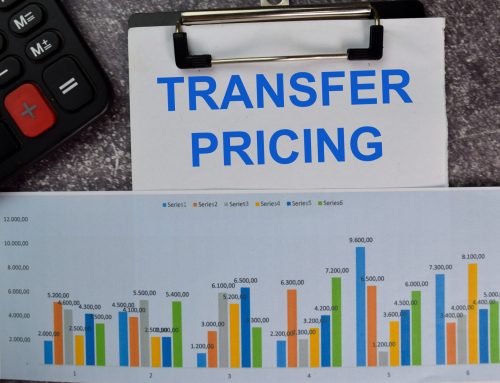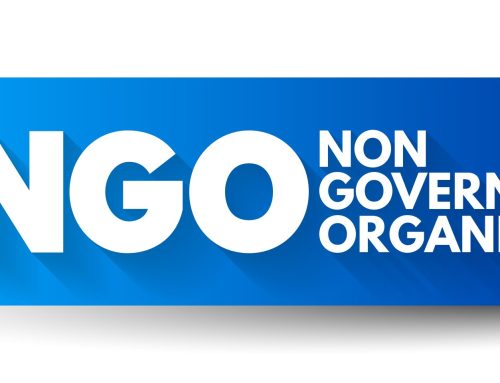THE LEGAL AND PROCEDURAL REQUIREMENTS FOR ESTABLISHING MINERAL TRADING AND EXPORT OPERATIONS IN TANZANIA
The United Republic of Tanzania has legal authority over any mining activities and minerals found on, in, or beneath Tanzanian continental soil. Some of the minerals found in Tanzania include gemstones, gold, silver and copper.
Any person with valid mineral rights may deal in minerals depending on the scope of their licence, according to the Tanzanian law.
A foreigner can get a licence and/or permit to trade and export minerals and the conditions are outlined in the later parts of this Article.
Therefore, approvals from the licensing authority, the Tanzania Mining Commission, are needed for trading and exportation of minerals. The Commissioner for Minerals, through an application for prospecting minerals, may grant the necessary licenses and permits to trade in and export minerals in Tanzania
Who Can Trade and Export Minerals in Tanzania?
As elaborated above, minerals in Tanzania can be owned or possessed by a person with valid licences mineral licences. With regards to trade and exports of minerals however, the following licences and permits are involved:
Persons with Mining Rights
A person with mining rights such as prospecting, smelting, processing and so on is allowed to sell their acquired minerals to a licenced broker via a mineral buying station.
Licenced Brokers
A broker’s licence authorizes the licence holder to buy or acquire gold or gemstones in a designated buying station specified by the licence and sell the same minerals to a licensed dealer at a Mineral and Gem House.
A broker licence only grants the licence holder with a domestic market and does not authorize the holder to export any minerals.
Licenced Dealers
A dealer’s licence allows a licence holder to buy and sell minerals specified in their licence from a licenced Broker at a Mineral and Gem House and to persons within Tanzania or to persons outside Tanzania through exporting the minerals specified in their licence.
Gem Trade Fairs
As per Regulation 2 of the Mining (Minerals and Mineral Concentrates Trading) Regulations, 2018, a Gem Trade Fair means an exhibition or trading event, organized periodically, aimed at allowing many buyers and sellers to meet for purpose of trading gemstones and gems at a fair market price and promoting mineral trading or value addition activities of gems or other precious minerals.
Since Gem Trade Fairs are state established, the conditions for participation by mineral rights holders are two-fold depending on the level of participation.
Where a person wishes to sell minerals in a Gem Trade Fair, they must make an application for an import permit for the minerals to be traded at the Gem Trade Fair. A requirement for a permit also applies where a person wishes to export minerals acquired through a Gem Trade Fair.
This right is also granted to a non-resident with a special permit who acquires minerals from an authorised miner, licensed dealer or a Gem Trade Fair in Tanzania and exports the same after fulfilling specified legal requirements provided by the law highlighted below.
THE EXPORTATION OF MINERALS FROM TANZANIA
The law prohibits an authorised miner, licensed dealer or any other person to export minerals without having an exportation permit of minerals from an authorised officer. In this case, any mineral produced by any authorised miner or minerals purchased by a licensed dealer from either an authorised miner or licensed broker, shall not be exported from Tanzania without having an exportation permit.
The Right to Export Minerals
The Tanzanian government as the owner of minerals in Tanzania charges royalties based on two factors: the gross value of the minerals to be exported and the type of minerals to be exported. For instance, gemstones and diamonds are charged 5% of the gross value of the consignment while the rate for gold, copper, silver, and platinum minerals is 4% and a gem is charged 1% of the gross value. All minerals within the industrial mineral, including building material and salt are chargeable at a rate of 3%.
The right to trade or export minerals has been given to the classes of people with the right to possess minerals in Tanzania.
A special export permit is granted to non-residents to export minerals from Tanzania while export permits for minerals from a gem trade fair are granted after payment of requisite fees and royalties.
A major limitation is that non-residents are not be permitted to export minerals more than twice a year. A non-resident with a tourist visa is permitted to export minerals after paying the required export permit fee for minerals not exceeding a value of USD 1,000. The application fee is USD 200 for minerals worth USD 1,000 or less. However, if the value of minerals is above USD 1000, the amount of export permit fee payable is USD 2,000 regardless of the excess of value over USD 1000.
- Requirements for Export Permit
An authorised miner and licensed dealer must pay the applicable royalties, fees and taxes due for a particular export before they can be granted with an export permit. Therefore, a permit is issued only upon application, approval of applicant and payment of all government fees. The Permit expires once a specified Mineral consignment has left the Tanzania customs barrier.
These minerals are exported pursuant to the conditions, set out in the Act and applicable regulations, as outlined in the permit. In the case of geological samples, cores or chips, an export permit from the authorised officer.
A holder of a processing, smelting or refining licence is not permitted to export any mineral which has been processed, smelted or refined by the license holder themselves unless they have obtained from the Commissioner a permit to export the mineral which evidences the payment by the authorised miner of royalty or provisional royalty.
In the case of a holder of a processing, smelting or refining licence, they may only export minerals upon making a provisional payment, as per the provisions of the law, instead of royalties.
The exported minerals are expected to meet the conditions set out in the Act or applicable regulations and also outlined in the permit. The application fees also have to be paid in all cases.
- Application for Export Permit
The application for an export permit of mineral by either an authorised miner, licensed dealer or holder of a processing, smelting or refining licence shall be done to the authorised officer appointed by the Commissioner for Mineral through Form MTF. 1 (Application for Permit to Export Minerals and Samples of Minerals). An application for a permit to export processed minerals shall be made in Form MBF. 1.
- Issuance of Export Permit
A permit to export minerals and samples of minerals shall be issued only in respect of minerals and samples of minerals which have first been examined and weighed by the authorised officer and packed in a container the outer cover of which has been sealed at every opening with the seal of the Minerals Division or such other seal as the Commissioner may, in writing, may approve.
A permit to export processed minerals shall be issued only in respect of processed minerals which have first been examined and weighed by the Commissioner and packed in a container the outer cover of which has been scaled at every opening with the seal of the Minerals Division or such other seal as the Commissioner may, in writing approve.
- Cessation of Export Permit
A permit to export minerals, samples of minerals or processed minerals shall cease to be valid if any of the seals affixed to the container are broken before export.
The time limitation for the exportation of minerals is stated on the permit Form MTF.2 titled “Export Permit for Minerals and Samples of Minerals” as under the Mining (Minerals and Mineral Concentrates Trading) Regulations, 2018.
The validity period on an export permit is prescribed on a case by case basis. Where the period for exportation lapses, the permit becomes invalid.
- Requirement for Export Permit by Non-Resident
The Tanzanian law prohibits any mineral acquired by a non-resident either from an authorised miner, licenced dealer or gem trade fair to not being exported by a non-resident without having an exportation permit to export those minerals. The permit obtained by the non-resident to export minerals from Tanzania may be either a special export permit or an export permit.
- Special Export Permit
This type of permit is issued to a non-resident who intends to export minerals that had been originally purchased from a licensed dealer or an authorized miner. The non-resident shall apply and pay the application fee before the Commissioner for Minerals is to issue this permit. The application for Special Export Permit shall be done through Form MTF. 13.
However, the payment of the application fee can differ in case a non-resident is in Tanzania by virtue of a tourist visa and the value of the mineral to be exported is less than USD 1,000 and the royalty for the mineral is proved to be paid.
- A special export permit is granted to a non-resident only once a year.
- Export Permit
This permit is only granted to a non-resident who intends to export minerals that they purchased from the gem trade fair. The Commissioner will grant this permit after receiving a request from a non-resident and receiving payment of the requisite fee. The application to the Commissioner shall be through a special Form.
Once issued, every export permit for tanzanite minerals must be accompanied by a certificate of origin issued by an officer authorised for that purpose. The custom official or any authorised officer shall have the power to confiscate any tanzanite minerals being exported without a certificate of origin.
- Re-Export Permit of Minerals from Tanzania
Where a person had previously imported minerals into Tanzania under a valid import permit as per the old and revoked Mining (Mineral Trading) Regulations, 2010 they shall be required to apply for an export permit where they wish to re-export the minerals out of Tanzania for instance where they are unable to market the minerals.
For the exportation the Commissioner examines the import permit for those minerals and upon satisfaction that the minerals to be exported consist entirely or in part of the minerals to which the import permit refers he shall issue an export permit.
- Surrender of Export Permit
At the point of exit from Tanzania, the holder of any permit to export minerals, samples of minerals, or processed minerals must present the original relevant permit to a government official (customs or postmaster). The original permit is then forwarded to the authorized officer by whom it was issued.
CONCLUSION
The mineral export permit is an essential document that allows dealers and miners to export minerals out of Tanzania. It is important to note that mineral export permits are issued only once per consignment and are valid only for the period specified on a permit and the period shall be dependent on the nature of minerals and discretion of the Commissioner.
Since permits and licences are subject to the payment of prescribed fees and royalties, persons must ensure that all payments are made on time and at the amounts billed/levied by the State.
Where a person fails to pay annual rent, royalty or to make payment in lieu of royalty payable by him they shall be subjected to pay a penalty of:
- Twenty five per centum of the amount which is due, in case of an individual person
- Fifty per centum of the amount which is due, in case of a body corporate.
Failure to pay penalties and the other fees, annual rents, royalty or payments in lieu of royalty shall create a debt which shall be recovered in a court of competent jurisdiction by the Court for the State.
Where a person exceeds the scope of his licence or permit or acts without a permit or licence in dealing of minerals they are regarded to commit an offence as per Section 18 of the Mining Act of 2010. Upon conviction, such person shall be liable to:
- In the case of an individual, to a fine of not less than five million shillings but not exceeding ten million shillings or to imprisonment for a term of not less than one year but not exceeding three years or to both
- In the case of a body corporate, to a fine of not less than twenty million shillings but not exceeding fifty million shillings.
Contact Person and Contributors
Comfort Mugisha Blandes- Managing Partner
Harry Godfrey Mbise- Associate
Disclaimer:
This publication has been prepared for information purposes only, and it does not constitute professional advice. You should not act upon the information contained in this publication without obtaining specific professional advice. No representation or warranty is given as to the accuracy or completeness of the information contained in this publication, and, to the extent permitted by law, Cymbell Attorneys, its partners, employees and agents do not accept or assume any liability, responsibility or duty of care for any consequences of you or anyone else acting, or refraining to act, in reliance on the information contained in this publication or for any decision based on it.






